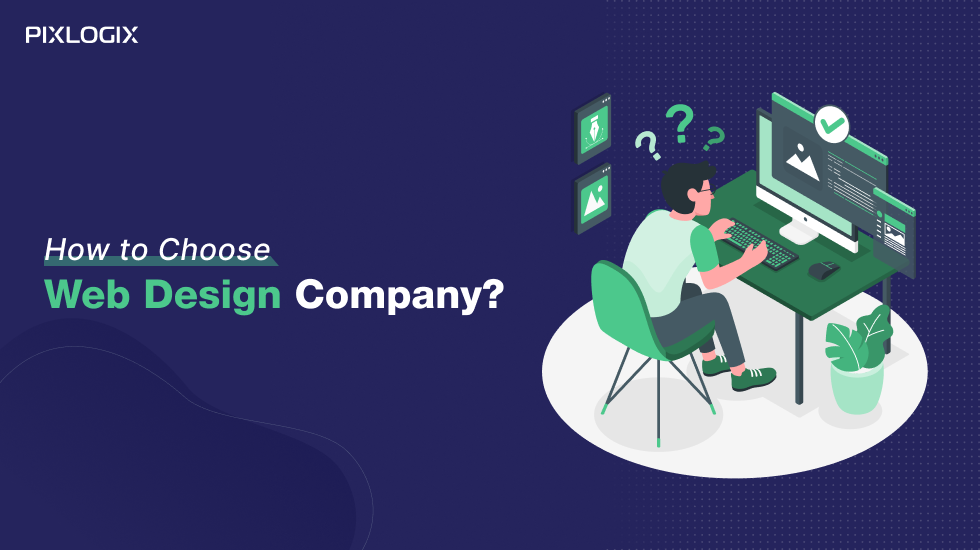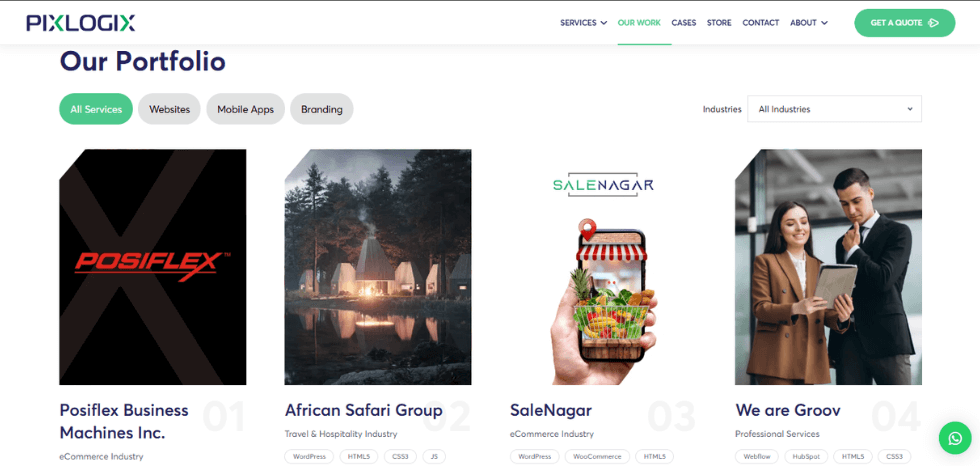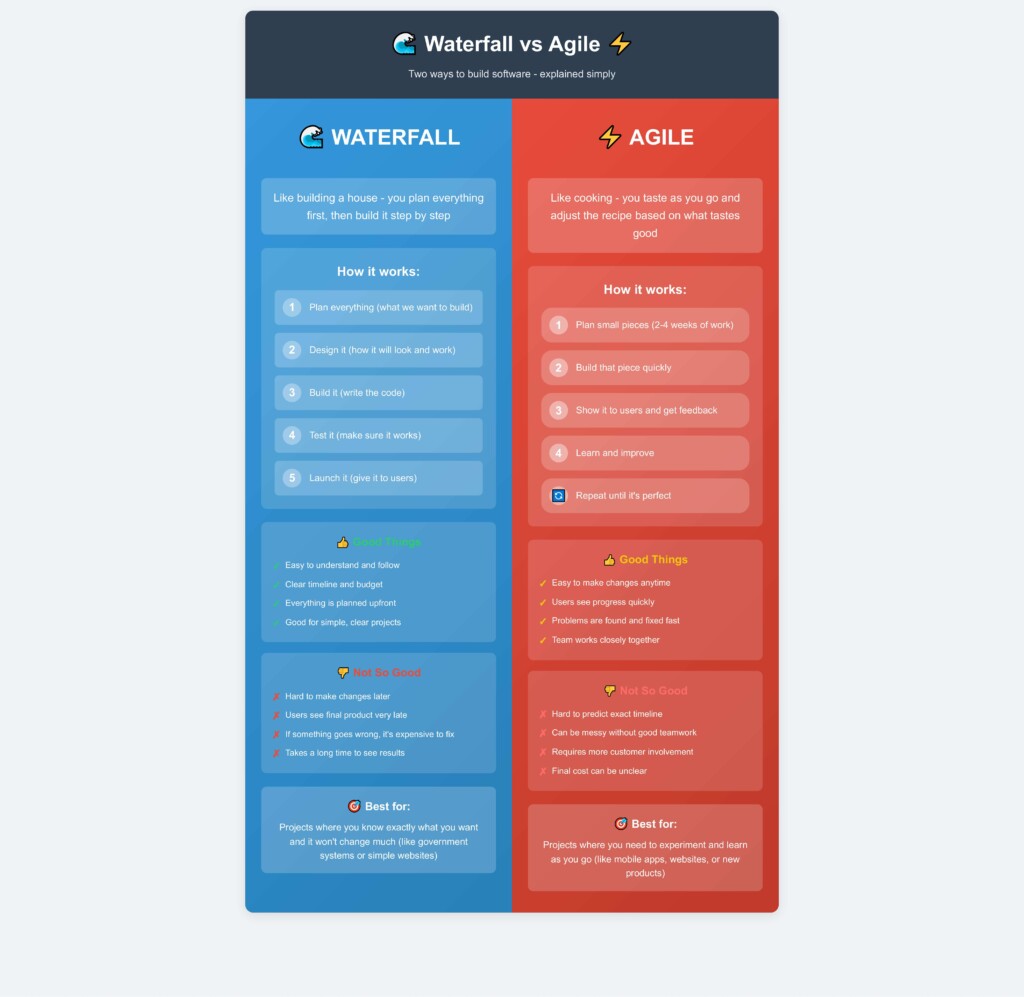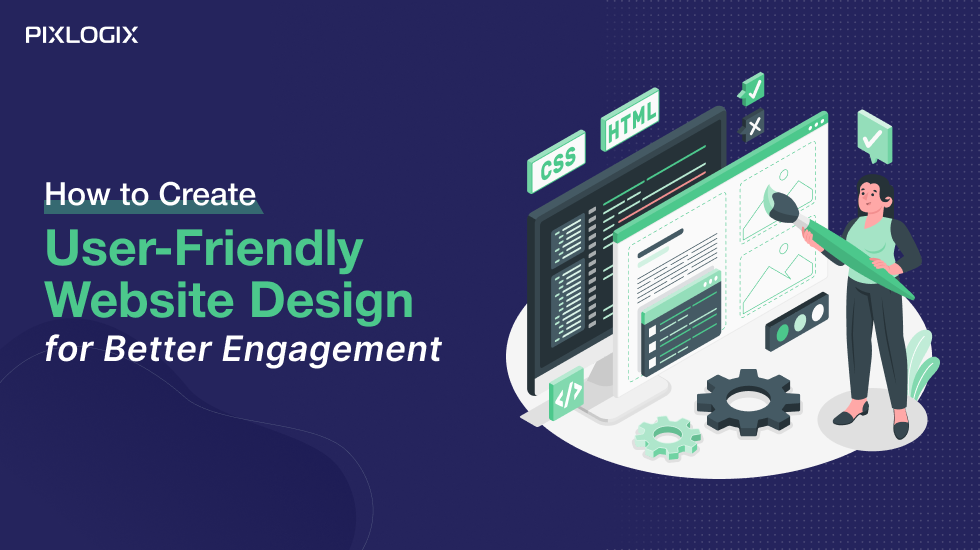
Any firm with a significant internet presence has to choose the appropriate web design company. A well-designed website enhances user experience, raises engagement, and assists a sale to turn out as intended, so fostering business expansion. Staying with brand identity helps to visually appeal, provide fast loading times, and seamless navigation.
A great web design agency will supply you the newest technologies, help you save money, and provide you with access to seasoned personnel. Combining these elements results in effective websites that satisfy corporate demands.
By creating a convincing digital experience to gain and keep clients, this article will teach you how to choose the finest web design service that fits for long-term success. We should so stay to be the audience.
Choose the Right Web Design Company for a High-Converting Website
These are the ten simple ways to choose the perfect web design firm that will know your needs and provide appropriate answers.
- Step 1: Specify the Objectives and Criteria of your Website.
- Step 2: Investigating and Compiling Possible Web Design Firms
- Step 3: Evaluate Their Competency
- Step 4: Go Over Client Reviews and Testimonials
- Step 5: Review Their Approach to Web Design
- Step 6: Should be Look for Performance Optimization and SEO.
- Step 7: Examine Value for Money and Pricing
- Step 8: Support and Maintenance Following Launch
- Step 9: Check Their Contractual and Legal Policies
- Step 10: Decide With Knowledge
Step 1: Specify the Objectives and Criteria of your Website.
Clearly state your website aims and requirements before selecting the best web design agency. Find out whether your priorities are branding, e-commerce, or lead generation. Name key elements including CMS integration, responsive design, and SEO enhancement.
At last, create a reasonable budget that fits the scale of your project and guarantees you maximize value for your money.
Step 2: Investigating and Compiling Possible Web Design Agency
Strong portfolios should highlight responsive designs, search engine optimized structures, and user-friendly interfaces. Research respected companies on websites such as Google, Clutch, DesignRush, and LinkedIn next.
To evaluate credibility, hunt case studies, client evaluations, and ratings. Review their portfolios to assess industry experience, design sensibility, and utility. Make sure they provide custom development or have knowledge of systems as Magento, Shopify, Webflow, and WordPress.
Step 3: Evaluate Their Competency
Selecting a web design company with pertinent industry knowledge guarantees their awareness of your target audience and corporate demands. Using domain knowledge, a company may design customized solutions fit for your sector trends and consumer expectations.
Technical Acumen
Look for companies skilled in UI/UX design as flawless navigation and user experience enhancement depend on easy interface. Make sure they give mobile responsiveness first priority since most consumers see their devices. Furthermore, optimization of websites is vital; slow-loading websites affect SEO results and drive consumers away.
Method with Conversion Focus
To increase conversions, a top web design agency uses strategic components such interesting CTAs, simple navigation, and convincing content placement. Focusing on user involvement and lead creation, their strategy should complement your company objectives.
Step 4: Go Over Client Reviews and Testimonials
Positive evaluations and case studies demonstrate a company’s experience by stressing completed projects with quantifiable outcomes. Examining client testimonials and evaluations of a web design firm helps one evaluate their reputation.
Real service quality, communication, and project delivery comments abound on sites such Clutch, GoodFirms, and Google Reviews. Look for warning signs such missing deadlines, inadequate help, or unstated expenses.
Step 5: Review Their Approach to Web Design
Knowing the process of a web design agency guarantees a seamless project experience. Usually, a systematic process consists in first discussion, wireframing, prototyping, development, and final deployment. Think about their project management style. In the development industry, 2 project management processes are the most popular; Waterfall and Agile.
Waterfalls follow a step-by-step, set plan, whereas Agile lets flexibility and constant input.
They should be skilled in choosing depending on the requirements of your project. Crucially important are good communication and teamwork. Find out how often you should get updates and offer comments.
An excellent provider will engage you in decision-making to guarantee your vision fits the final design for a high-converting website.
Step 6: Should be Look for Performance Optimization and SEO.
Attracting natural visitors and raising search engine results depends on a well-designed website being SEO-friendly. This covers fast-loading pages, ordered URLs, and clean code.
Furthermore, important for SEO and user experience are fundamental Web Vitals. To improve performance and credibility, make sure the business gives page speed optimization, mobile responsiveness, and security (SSL encryption top priority).
Step 7: Examine Value for Money and Pricing
Choosing a web design agency depends on knowing pricing policies. Agencies could charge project-based costs, hourly rates, or a set fee. Look at the package’s contents—design, development, mobile responsiveness, SEO optimization, maintenance, and post-launch support.
While some agencies charge individually, others provide continual upgrades and hosting. Watch for hidden expenses such paid plugins, additional payments for changes, or upcoming updates. Clear pricing guarantees that your investment will provide the highest return.
Step 8: Support and Maintenance Following Launch
Perfect user experience, security, and performance all depend on constant website upkeep. Frequent upgrades provide flawless operation and defense against cyberattacks by avoiding weaknesses.
Review the company’s support choices for long-term maintenance: monthly retainers, a pay-as—you-go plan, or an annual maintenance contract.
Selecting a provider with constant post-launch support guarantees that your website stays high-performance and optimizable.
Step 9: Check Their Contractual and Legal Policies
Before choosing a web design agency, go over their legal policies to help to prevent conflict. Make sure you keep complete responsibility for the design, codes, and content. While security policies guarantees compliance, an NDA protects private information.
Review terms for cancellation, refund, and modification to help avert financial losses. Well written contracts give your company long-term protection and openness.
Step 10: Decide With Knowledge
Researching shortlisted companies, evaluate them according on job quality, cost, knowledge, and assistance. For the optimum match, use a comparison matrix. Have last conversations to clarify communication, deliverables, and deadlines.
Attend to issues with changes, scalability, and maintenance. Making a wise choice guarantees a good cooperation and a website fit for your company.
Once content, execute a thorough contract defining project scope, payment conditions, and ownership rights. A well-organized agreement guarantees mutual knowledge and helps to avoid conflict. Once this is done, you may boldly begin the project with the selected web design firm.
Red Flags to Steer Clear of While Hiring a Web Design Company for a High-Converting Website
Ensuring a top-notch, conversion-oriented website depends on selecting the appropriate web design firm. Some red flags, meantime, can point to possible hazards, inadequate quality, or lack of experience. This is something to be alert for:
#1. No clear portfolio or case study; suggests inexperience.
A respectable web design firm should have a well-documented portfolio with actual case studies proving their knowledge. Should an agency lack these, it might indicate:
- Their knowledge of actual customers is either little or nonexistent.
- Their prior work is insufficient to be on public exhibition.
- Projects they outsource might lack actual in-house knowledge.
Contact them for asking case studies that proving quantifiable success—such as better conversion rates or more visitors. Search for several initiatives pertinent to your field of business.
#2. One- Size-fits-all remedies – Lack of Customizing
A good website has to be customized for your brand identification, audience demands, and company objectives. Avoid firms that:
- Use Generic Templates Without Modification
- Ignore Needs of Target Audience
- Lack of Personalized Call-to-Actions (CTAs)
- No Scalability or Future Growth Consideration
- Website Should Match Marketing Goal
- Minimal or No UX/UI Research
- Lack of Industry-Specific Characteristics
- Use generic Templates Without Modification: This indicates a lackadaisical attitude if every website they develop feels like a simple template, lacks branding aspects, or looks the same. Your website should be unique and mirror your brand’s character.
- Ignore Needs of Target Audience: Your ideal clients should be catered for on a well-designed website. An agency won’t build a website that generates interaction and conversions if it does not inquire about your consumer demographics, behaviors, and pain issues.
- Lack of Personalized Call-to- Actions (CTAs): CTAs should be positioned deliberately depending on the purchase path of your audience. A cookie-cutter website might lack lead generating techniques, data-driven CTA placements, or A/B testing.
- No Scalability or Future Growth Consideration: Should the agency create a website with limited adaptability (e.g., challenging to add new features, increase content, or integrate new tools), you might find yourself needing expensive redesigns sooner than intended.
- Website Should Match Marketing Goal: Whether your marketing objectives are lead generation, online sales, or brand awareness, your website should complement them, failing which it will not align with business objectives. If an agency neglects to address business impact or conversion rate optimization (CRO), it most certainly lacks a strategic strategy.
- Minimal or No UX/UI Research: User psychology guides the design of a good website. Skipping wireframes, usability testing, or audience research often results in aesthetically pleasing but functionally poor websites by agencies.
- Lack of Industry-Specific Characteristics: distinct sectors call for distinct functionality (member portals for SaaS, e-commerce product filters, hotel booking systems). Should the agency fail to customize features for your specialty, they might not be familiar with your market.
Ask how they customize websites for various clientele. A high-converting website calls for a calculated strategy combining UX/UI customizing, branding, and user research.
#3. Outdated Practices: No SEO or Mobile Optimizing Strategy
Convertions and exposure depend on SEO and mobile friendliness. Should a business neglect:
Give mobile-friendly design first priority.
- Apply fast page speeds, structured data, and keyword optimization among SEO best practices.
- Improve for Core Web Vitals.
- They are so adopting antiquated techniques that will not efficiently assist your website rank or convert visitors.
What should one do? Find more about their technique of mobile optimization and SEO. Verify they include speed optimization, responsive design, and technical SEO.
#4. Bad Communication: Vague Responses or Delayed Reaction
Designing a website depends on good cooperation. Should an agency answer calls or emails, it does so too slowly.
- Provides evasive or too technical responses without attending to issues.
- Leaves you out of the design and development process.
- Frustration, delays, and mismatched expectations can all follow from it.
Test their responsiveness before you start to hire. Inquire about their frequency of updating clients and include them in decisions. Excellent communication is really vital.
#5. Unmet Expectations
Shady firms offer highly improbable promises during their initial interaction. In that case, you might be buying a low-quality service or a fraud. Good site design and SEO need for planning, time, and testing. Often, quick-fixes involve low-quality templates, black-hat SEO methods, or cutbacks based on expediency.
Fake:
- We guarantee your website will rank #1 on Google within a week!
- Your website will be 100% custom-made, no templates at all!
- We’ll deliver your fully functional eCommerce site in just 2 days!
- We offer lifetime free maintenance and support!
- You’ll start seeing sales increase instantly after we launch your website!
- Unlimited revisions at no extra cost.
True:
- We create user-focused, responsive websites tailored to your brand and business goals.
- Our team follows industry best practices to build secure, SEO-friendly websites with clean code.
- We provide clear timelines and keep you updated throughout the design and development process.
- After launch, we offer ongoing support and maintenance plans to keep your website running smoothly.
- We won’t promise overnight results, but we’ll build a site that sets the foundation for your digital growth.
What to be cautious of are promises that seem too good to be true. For sustained outcomes, a trustworthy web design firm follows a disciplined design process, employs ethical SEO, and creates reasonable schedules.
High-converting websites call for UX, SEO, mobile friendliness, and customizing knowledge. Steer clear of organizations without strategy, openness, or experience. Rather, hunt for a firm that values long-term success, open communication, and research over short cuts.
In conclusion
Digital success of your organization depends on choosing the correct web design firm. A well-made website helps long-term corporate development, increases user experience, and boosts conversions. Remember also that a good website is about usefulness, user interaction, and long-term business expansion rather than only appearances.
- The proper web design firm will create a brand-specific, conversion-oriented website.
- Guarantee of flawless user experience and mobile friendliness.
- Apply SEO best standards to improve web presence.
- Offer flexibility and scalability for further expansion.
Never accept a one-size-fits-all solution! Investigate, evaluate, then select an agency that fits your company’s objectives. Get in touch with top web design firms right now for a consultation and start toward a strong online presence.
Ashish Tiwari is an SEO manager at Pixlogix Infotech Pvt. Ltd. bringing 8+ years of expertise in driving organic traffic and creating data-driven marketing strategies. With a deep understanding of business, marketing, and promotional tactics, he specializes in technical SEO, content optimization, and paid advertising. Ashish has helped businesses across e-commerce, SaaS, healthcare, and other industries achieve measurable growth. Known for his dedication and growth mindset, he has consistently delivered impactful results and achieved significant milestones in record time.
Related Post

Get in Touch Now!
Have a word with our expert consultants about your next project to get suggestive guidance & proposal.
Sales Inquiry
HR Inquiry
India’s First SOTD Winner on Awwwards.com – 2010







